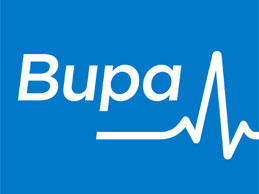Expert MSK Physiotherapy with on the day appointments in Sarisbury Green Fareham and West End Southampton
Book Online now at your convenience using our secure online booking platform.
Musculoskeletal physiotherapy focuses on diagnosing and treating disorders and injuries related to the musculoskeletal system, which includes muscles, bones, joints, tendons, and ligaments. Our goal is to restore your normal function, alleviate pain, and help you get back to doing what you love.
Our excellent team of MSK Physiotherapists are fully HCPC Registered and available for appointments without having to wait.
Our Sarisbury Green Physiotherapy clinic is beneficial if you experience:
– Joint pain – such as in the knees, hips, shoulders, or spine
– Neck and back strain– acute or chronic discomfort, stiffness, or reduced mobility. Physiotherapy is good for back strain or sciatica treatmen
– Muscle strains and ligaments sprains – injuries resulting from overuse or trauma such as your ankle or knee.
– Tendinopathies – conditions like tendinitis, often affecting the Achilles tendon, rotator cuff, or elbow
– Arthritis – including osteoarthritis and rheumatoid arthritis
– Post-surgical rehabilitation– after procedures such as joint replacements or ligament repairs
– Sports injuries – such as ligament tears, fractures, and overuse injuries
– Repetitive strain injuries (RSI)– commonly affecting the wrists, elbows, or shoulders
– Work-related injuries – due to poor posture, lifting techniques, or ergonomic issues
– Have Private Medical Insurance – we accept referrals from Bupa, AXA Health, AVIVA, Vitality, WPA and many more!
OUR EXPERT HCPC REGISTERED PHYSIOTHERAPISTS
BENEFITS OF MUSCULOSKELETAL PHYSIOTHERAPY
Physiotherapy is a holistic approach to healing and recovery, offering numerous benefits, including:
Pain Relief
Through targeted exercises, manual therapy, and modalities like heat or cold therapy, physiotherapy helps reduce pain and discomfort in affected areas. It is hugely beneficial for sciatica or back strain treatment
Restoring Mobility
Joint stiffness, muscle tension, or pain can restrict movement. Physiotherapists work with you to improve range of motion and flexibility.
Strengthening Muscles
Weak muscles can lead to injury or exacerbate existing problems. Strengthening exercises help improve muscle function and stability, reducing the likelihood of future injury.
Improving Posture and Balance
Poor posture and weak stabilizing muscles can result in chronic pain or injuries. Physiotherapy includes education on proper posture and techniques to maintain balance and body alignment.
Speeding up Recovery
After surgery or injury, tailored physiotherapy can speed up the recovery process, helping you regain strength, mobility, and function more efficiently.
Preventing Future Injuries
Physiotherapy not only treats existing injuries but also addresses the root causes, helping prevent recurrence. You’ll learn exercises and techniques to protect your musculoskeletal health long-term.
WE’RE DELIGHTED TO ACCEPT REFERRALS FROM PRIVATE HEALTH INSURERS FOR MSK PHYSIOTHERAPY AND CHIROPRACTIC CARE FROM BUPA, AXA HEALTH, VITALITY, WPA, VITALITY AND MANY MORE.





WHAT TO EXPECT
Before you begin your treatment, you will undertake a consultation lasting approximately an hour. This is to go over your complete medical history, current lifestyle and the reason for visiting. Your experience should feel completely unique as it takes a whole-body approach at diagnosing and treating.
It is advised to wear loose comfortable clothing to an appointment as your physiotherapist may ask you to perform some movements, along with walking in a straight line. This is to determine if your condition is affecting your walking capabilities. Additional nerve-based assessments may be performed such as reflexes of the legs. These are non-invasive and painless.
After your assessment is complete, you will be diagnosed, and a treatment plan will be discussed. This will likely consist of a series of daily/weekly exercises for you to perform before coming back for your initial first session.
After you have completed this, your first appointment should take 30 minutes, to go over how the week has been and if any improvements have been made. Additional stretches and massages may be introduced, alongside increasing your exercises as the weeks go on. If you are getting stronger every week, you may only need so many sessions before you are discharged and given exercises to complete going forward.
Physiotherapists like to inspire confidence in their clients, ensuring they get the best advice given for their condition. There really are multiple advantages for a better quality of life after seeing a physiotherapist.
Conditions Treated with Musculoskeletal (MSK) Physiotherapy
Musculoskeletal physiotherapy is effective for a wide range of conditions, including:
Lower Back Strain
A common issue that can stem from muscle strain, disc issues, or poor posture. Physiotherapy can help alleviate pain and improve strength and flexibility in the spine.
Neck Pain and Whiplash
Whether from poor posture, trauma, or overuse, neck pain can be effectively managed with targeted treatments.
Arthritis
Physiotherapy can help manage the symptoms of arthritis, such as pain and stiffness, by improving joint mobility and reducing inflammation.
Rotator Cuff Injuries & Frozen Shoulder (Adhesive Capsulitis)
These conditions lead to stiffness and pain in the shoulder. Physiotherapy helps improve shoulder movement, overall function and reduce pain through manual therapy and exercises.
Tennis/Golfer’s Elbow
Tendon injuries caused by repetitive use of the elbow can be effectively treated with stretching, strengthening, and pain relief techniques.
Carpal Tunnel Syndrome
This condition causes pain and numbness in the hand and wrist. Physiotherapy can relieve pressure on the median nerve and improve hand function.
Plantar Fasciitis
Pain in the bottom of the foot can be relieved through stretching, strengthening, and manual therapy techniques.
Knee Injuries including Runners knee, Jumper’s Knee, Ligament injuries, Patello-femoral pain, ACL Injuries and Post-ACL Surgery Rehab
Physiotherapy plays a key role in rehabilitation following ligament injuries to the knee, such as anterior cruciate ligament (ACL) tears.
Ankle Sprains
Pain and swelling arising from ankle sprains can be managed via a number of rehab and hands-on techniques
Achilles Injuries
Pain in the back of the heel from running, jumping, poor footwear or just day to day micro-trauma can be assessed and rehabilitated effectively with Physiotherapy
And much more!
Are you local to us, from Whiteley, Hedge End, Bursledon, Warsash, Bitterne, Boorley Green, or just looking for arguably the best place for physiotherapy in Hampshire, look no further than our amazing MSK Physiotherapists based in Sarisbury Green, Fareham & West End, Southampton.


